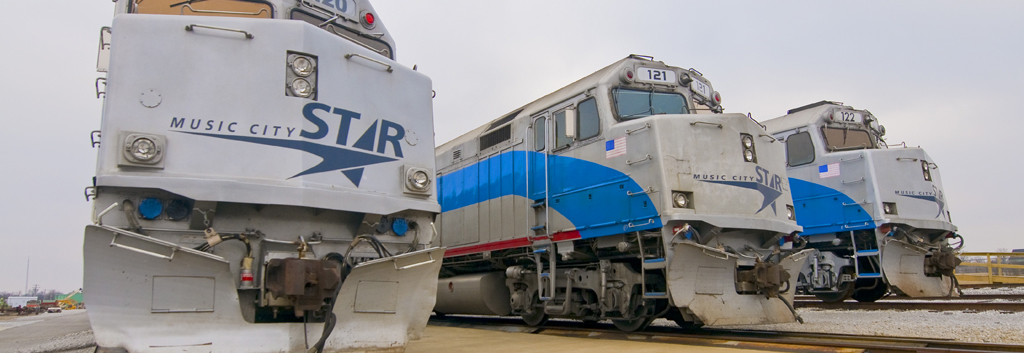
Feasibility and Financial Analysis
One of the first steps in determining whether to implement passenger rail service is an initial feasibility study and financial analysis. RLBA offers many decades of experience working with both public and private sector clients to determine the operational and financial feasibility of both turn-key and expansion of commuter and intercity passenger rail service.
MUSIC CITY STAR:
Responding to growing community interest in launching commuter rail service, the Nashville MTA asked RLBA to develop implementation plans drawing upon its 1996 feasibility study. RLBA developed plans for stations, train operations, freight impact mitigation, capital improvements and associated operating costs in three corridors. Right-of-way and capital costs associated with potential future extensions via new alignments serving Opryland and the airport via commuter rail and/or light rail also were estimated.
BAY AREA RAPID TRANSIT:
RLBA evaluated the feasibility of using existing Union Pacific Railroad-owned right-of-way and/or track to host a separate diesel light rail passenger service between Tracy or Brentwood, both east of Pittsburg, and one of two existing BART stations, Pittsburg/Bay Point or North Concord/Martinez at the far northeastern end of the BART system.
GEORGIA RAIL PASSENGER AUTHORITY AND GEORGIA DEPARTMENT OF TRANSPORTATION:
RLBA was engaged to help set in motion a process to implement Atlanta’s first commuter rail service. After reviewing extensive commuter rail, intercity rail and multimodal passenger terminal studies previously conducted, RLBA focused upon the infrastructure improvements, operational issues and costs associated with introducing commuter service on the CSX-owned Atlanta-Athens corridor. Following this analysis, RLBA developed and implemented a strategy for engaging CSX in meaningful negotiations concerning use of its facilities and participated in several meetings with regional and corporate level CSX staff.
WASHTENAW AND LIVINGSTON LINE COALITION (WALLY):
RLBA was reatined to perform an objective feasibility review of potential commuter rail service between Ann Arbor (Washtenaw County) and Howell, (Livingston County) Michigan, utilizing the Great Lakes Central Railroad (GLCR). Key tasks included evaluating ridership, operating and capital costs, connecting bus service, parking needs, transit oriented development and other metrics to assess the feasibility of service implementation. Commuter equipment and ADA compliance were important aspects of the study, since the equipment is already owned by GLCR.
